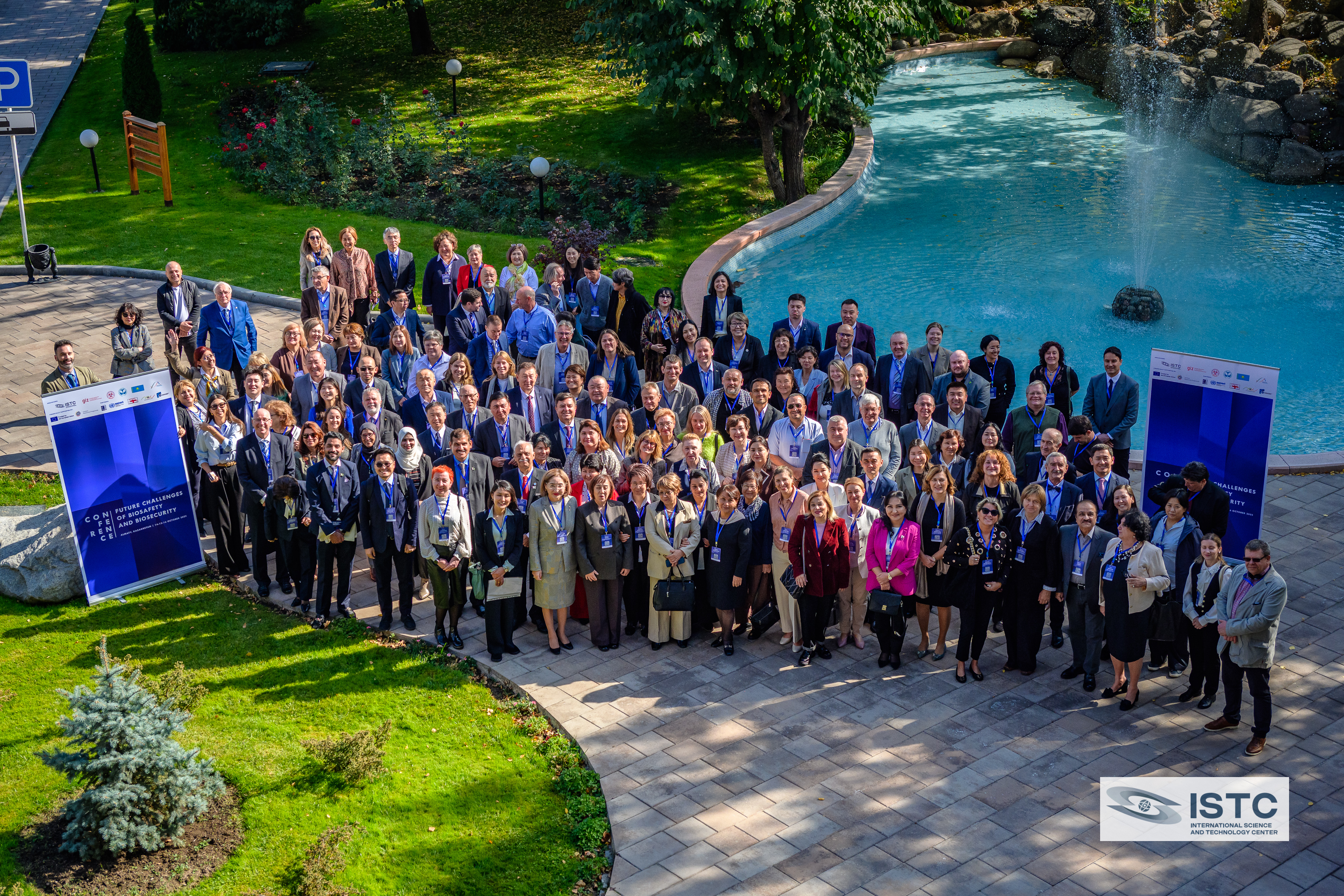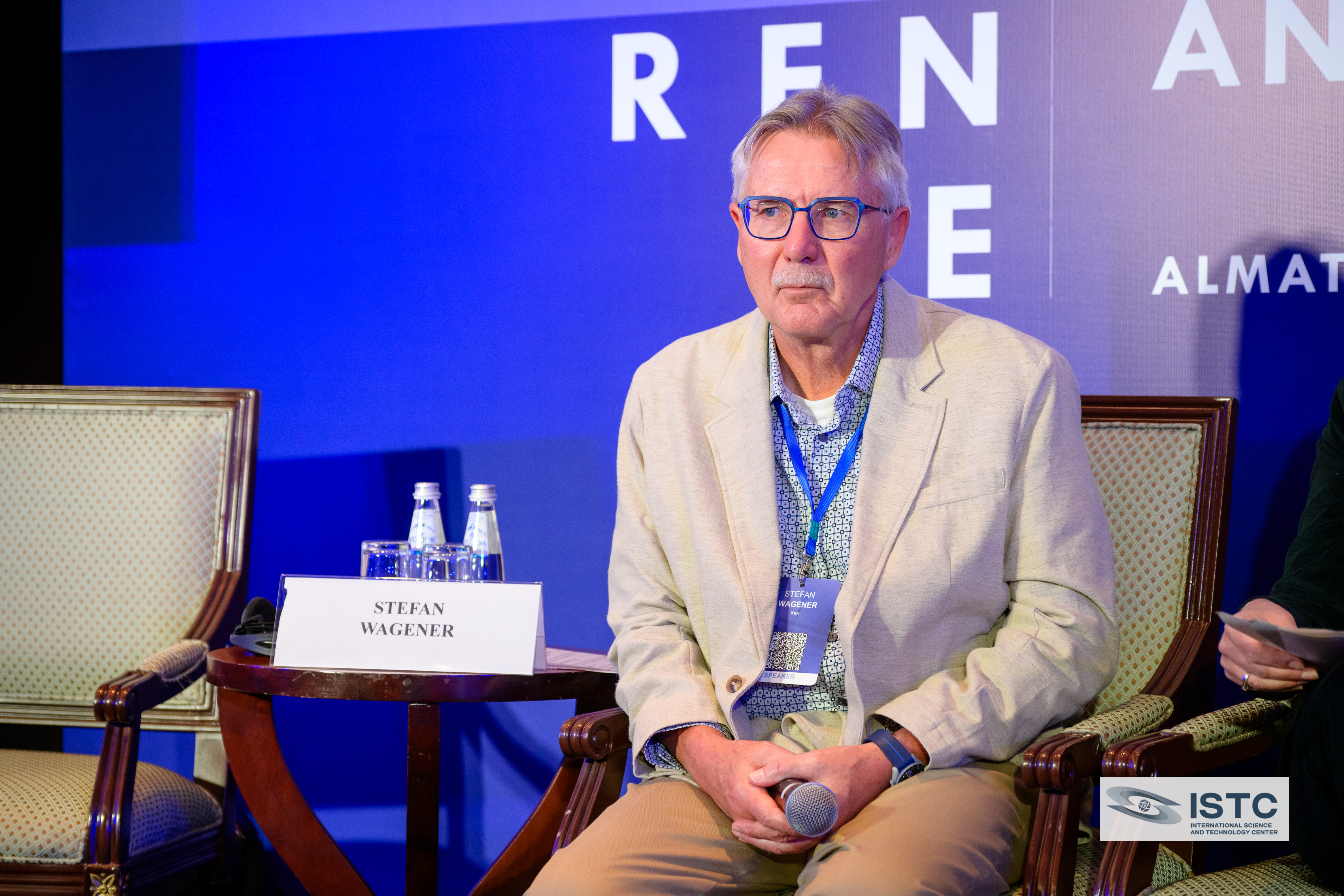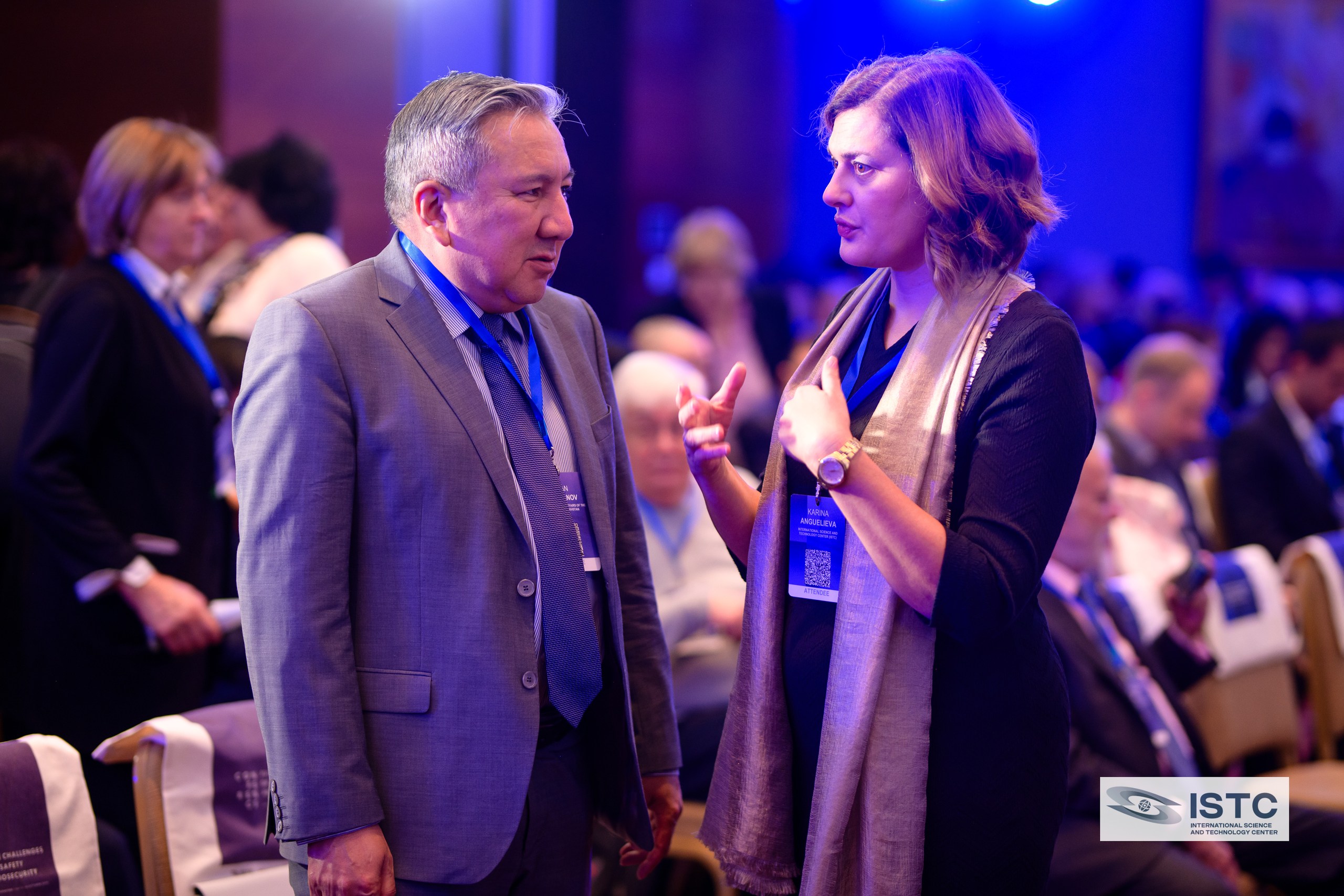The Future of Biosafety and Biosecurity discussed in an International Conference in Almaty, Kazakhstan

PRESS RELEASE
Global Experts Call for Stronger Cooperation to Address Emerging Challenges at the Future of Biosafety and Biosecurity Conference in Almaty
Almaty, Kazakhstan – 16 October 2025
From 14 to 16 October 2025, more than 150 experts from over 20 countries gathered at the Intercontinental Hotel in Almaty for the Future of Biosafety and Biosecurity International Conference, organized by the International Science and Technology Center (ISTC) and the Biosafety Association for Central Asia and the Caucasus (BACAC), with the support of GIZ, the Ministry of Foreign Affairs, and the Ministry of Health of the Republic of Kazakhstan.
The event explored emerging risks and opportunities at the intersection of science, technology, and global security, covering critical topics such as use of artificial intelligence (AI) in accelerating and enabling biosafety and biotechnology, mirror biology and synthetic life, the democratization of data and technology, and climate-driven health threats. Discussions underscored the importance of ethics, education, and training in ensuring that scientific innovation continues to serve humanity safely and responsibly.
Opening remarks were delivered by Karina Anguelieva (Executive Director, ISTC), Arman Baissuanov (Director-General, Ministry of Foreign Affairs of Kazakhstan), Damira Ashralieva (President, BACAC), and Katharina Niederhut (Head of Programme, GIZ German Biosecurity Programme).
Keynote speakers and panelists included Andrew Weber (Council on Strategic Risks, USA), Gerald Epstein (RAND Corporation, USA), Tomoya Saito (National Institute of Infectious Diseases, Japan), Jean-Pascal Zanders (The Trench, France), Stefan Wagener (IFBA, Canada), Dana Perkins (Independent Biosecurity Consultant, USA), Wilfred Wan (SIPRI, Norway), Clarissa Ríos Rojas (United Nations, Peru), and Aamer Ikram (Fauji Foundation, Pakistan) — along with regional experts Lela Bakanidze (BACAC, Georgia), Zauresh Zhumadilova (NSCEDI, Kazakhstan), Sarkhat Beisenova (Ministry of Health, Kazakhstan), Serhiy Komisarenko (National Academy of Sciences, Ukraine), Paata Imnadze (NCDC, Georgia), Nurbolot Usenbaev (National Institute of Public Health, Kyrgyzstan), and Farida Tishkova (Institute of Preventive Medicine, Tajikistan).
Among the highlights was the Workshop on Artificial Intelligence (AI) and Biorisk Management, facilitated by Dr. Stefan Wagener (BRMI) and coordinated by the ISTC. This session examined the dual-use implications of AI in bioscience, data management, and biosecurity monitoring — offering a practical lens on how digital technologies can both empower and challenge global health security.

A complementary Forum on “AI and the Democratization of Biotechnology” explored how the growing accessibility of AI tools is reshaping bioscience innovation and international cooperation. These discussions reflected ISTC’s evolving vision to integrate responsible AI into its broader science diplomacy and innovation agenda.
Over two days of high-level panels and workshops, participants reaffirmed the urgent need for increased international cooperation, continuous training and exchange of expertise, and shared responsibility to address dual-use biotechnology, AI-driven risks, and ethics of science.
A key outcome of the event will be the adoption of the “Almaty Call for Action”, a strategic roadmap to strengthen collaboration among public, private and academia sectors, transparency and responsibility in S and T, and preparedness within the global biosafety and biosecurity community.
This year’s conference also marked two milestones — the 50th anniversary of the Biological Weapons Convention (BWC) and the 10th anniversary of ISTC’s presence in Kazakhstan — underscoring the country’s growing role as a regional hub for science diplomacy, innovation, and technology.

“Through dialogue and shared expertise, we are building a bridge between research and security — ensuring that knowledge communities continue to be a force for peace and development,” said Karina Anguelieva, Executive Director of the ISTC.
“The Almaty Call for Action represents a tangible step toward collective responsibility in addressing the challenges of biotechnology and artificial intelligence,” added Damira Ashralieva, President of BACAC.
The event was supported by key partners including NSCEDI, NCB, Kazakhstan, STCU, UNICRI, WHO Europe, and the European Union through the EU Centres of Excellence Initiative and the German Biosecurity Programme.
A photo gallery will be shared with all our participants and highlight videos and other publciations will be published soon ISTC official networks.
Press contact:
Jordan C.S. Obry – ISTC Strategic Communications & Public Affairs
obry@istc.int | +7 708 016 2014 / +33 618 862 661

